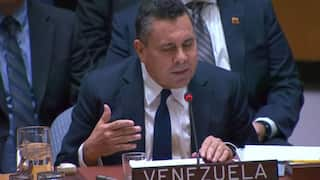RBI Monetary Policy: Banking And NBFC Sector Continue To Remain Resilient And Strong: Das On Adani Crisis
Das said the whole perception is coming because of the market cap of shares of the group as banks don’t lend on the basis of the market cap, but on the strength and fundamentals of companies

The Reserve Bank of India (RBI) Governor Shaktikanta Das on Wednesday said that the Indian banking sector and NBFC sector continue to remain resilient and strong. In reply to the question regarding the exposure of Indian banks in the Adani group Das said that the whole perception is coming because of the market capitalisation of shares of the group.
Governor Shaktikanta Das said, "The whole perception is coming because of the market capitalisation of shares of the group. Banks don’t lend on the basis of the market cap, but on the strength and fundamentals of companies."
The RBI governor also said, “We have issued a press release. I have nothing more to add to that. We do not discuss individual cases in the public domain. Having said that, in the last 3-4 years, the RBI has taken a number of steps to strengthen the resilience of Indian banks. All I would like to add now is that the Indian banking sector and NBFC sector continue to remain resilient and strong.”
Das said, “I have said what I wanted to say. We have made our own assessment. Rating agencies make their own assessment.”
RBI Deputy Governor MK Jain also said, “Domestic banking exposure is against underlying assets not based on market cap. Exposure, as of now, is not very significant,"
Adding to this RBI Deputy Governor M Rajeshwar Rao said that RBI’s supervisory reviews have shown that there are divergent practices among banks when it comes to the use of penal charges. It is in this background that we are proposing to issue draft guidelines so that there is transparency and uniformity.
The governor in the press meet also said that the Indian economy remains resilient, it has withstood several global shocks. "Inflation has shown signs of moderation and the worst is behind us. But there are concerns over core inflation. We are now witnessing conducive conditions of macro-economic stability," he said, while adding, "Indian Rupee has remained one of the least volatile currencies among its Asian peers in 2022. It appears to be so this year also."
Commenting on the RBI's directive to issue draft guidelines for monitoring the penal charges and penal interest levied by financial entities on advances, Abhay Bhutada, MD, Poonawalla Fincorp, said, "This is a much-required move from RBI especially for the NBFC sector. Currently, there are no clear guidelines on the manner how NBFCs can charge penal interest or penal charges. Implementing a transparent framework would improve consumer protection."
On Wednesday the Reserve Bank of India’s Monetary Policy Committee (MPC), headed by Governor Shaktikanta Das announced a 25 basis point (bps) hike in repo rate to 6.5 per cent. Maintaining an accommodative stance, the central bank maintained its commitment to fight inflation.
Related Video
Union Budget 2025: Arvind Kejriwal lists the shortcomings of the Modi government's budget | ABP News | AAP





































